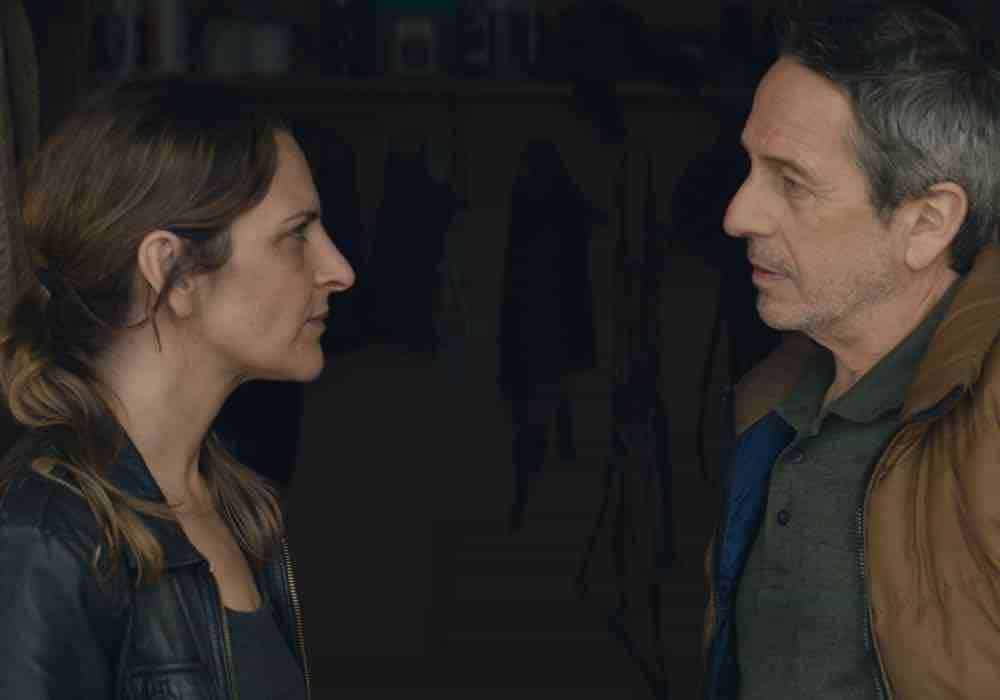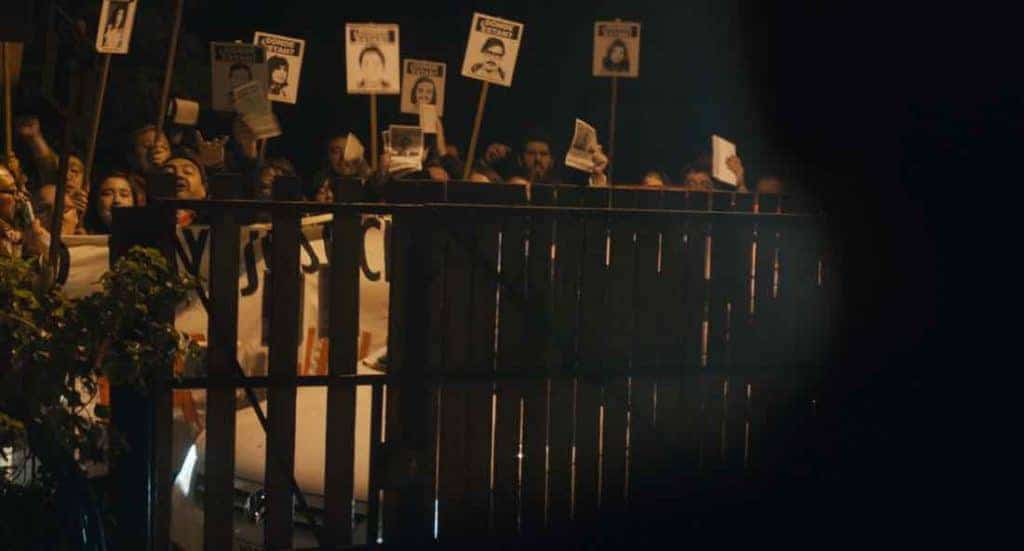Los Perros fearlessly reveals the dilemma for women forced to choose between a desire to do whatever they want, and a desire to be recognised as political individuals.

A week into the Cannes Film Festival, this year’s programme already stands out for its undeniable political streak. From Okja’s critique of animal cruelty to the AIDS crisis in 120 BPM; from protesting the Vietnam war in Le Redoutable to unveiling the hypocrisy of the rich in The Square, the competition line-up alone is proving to be engaged with social issues in a way it was not last year.
In a tense election year for France, with Brexit on the horizon and Donald Trump still president of the United States; where rational debate seems to have exhausted its potential, and people are at a loss for ways to truly try and change things, Cannes reminds us that the personal is political: we are all responsible.
In Critics’ Week, Marcela Said’s Los Perros reiterates this argument and returns it to its feminist origin: a rallying slogan for the student movements of the late 1960s, this idea was also the founding argument of second-wave of feminism. Set in contemporary Chile, the film follows Mariana (Antonia Zegers), a 42-year old married woman trying to conceive. Mariana, however, upends all the cliches that this description evokes. Free-spirited and never concerned with what anyone might think of her, she lives every day following only her whims and desires.
[clickToTweet tweet=”In LOS PERROS, Mariana is free-spirited and never concerned with what anyone might think of her.” quote=”Mariana is free-spirited and never concerned with what anyone might think of her.”]
As she’s comfortable with her sexuality, Mariana never stops herself from acting on her physical attraction to Juan (Alfredo Castro), her riding teacher, who is 18 years her senior. Rather, she’s even more interested in him when she finds out that he is being prosecuted for having violated human rights under Pinochet. Working in security at the time, he is suspected of having carried out murders, executions and tortures following the orders of the dictator.

What piques Mariana’s curiosity the most is Juan’s attitude towards the angry population outside his house, calling for his imprisonment. Rather than expressing shame and remorse for having followed such horrible orders, he is strangely bitter about being prosecuted. Mariana becomes all the more suspicious when her questions about the case are met with unexpected resistance from her family and from the police. Far from discouraging her, these obstacles only makes her more curious and excited, like a child eager to solve a mystery. In control of her body and visibly enjoying male attention, she does not hesitate to use her sexuality to obtain classified information from a policeman working on Juan’s case.
[clickToTweet tweet=”‘It’s a dare on her part, asking him to take her as a woman both sexual and political.'” quote=”It’s a dare on her part, asking him to take her as an entire being, a woman both sexual and political.”]
The sexual here is political, an idea never better expressed than in one of the film’s raciest, most thrilling sequences. Just out of the pool, Mariana takes off her bikini and ends up totally naked, all the while talking about the case with a fully dressed Juan. It’s a dare on her part, asking him to take her as an entire being, a woman both sexual and political. This acceptance of female plurality finds its polar opposite in the policeman’s sexual assault on Mariana after an evening of mutual flirting. This attack is the first act of political oppression against her in the film: never until this point has she been silenced or met with actual violence. The attack catches her off guard. Her sense of power and immunity flickers for an instant, but this incident ultimately consolidates her resolution to see this through, with a newfound awareness of just how entitled and violent the oppressors can be.
[clickToTweet tweet=”LOS PERROS is urgent, controversial, political, and feminist. ” quote=”LOS PERROS is urgent, controversial, political, and feminist. “]
Yet as her investigation reveals more extreme levels of corruption and violence than she ever imagined, and Mariana finds herself out of her depth. Her attitude changes. Scared and withdrawn, it’s as though she could sense what is coming. Given evidence of her father’s involvement in the murders carried out under Pinochet by serviecemen such as Juan, Mariana cannot bring herself to denounce his crimes.
Such cowardice comes as a real surprise from such a strong, fearless character who until this point seemed so determined to help the man she had fallen for. This twist puts the viewer through a difficult process very rare in commercial cinema, where a lead character we have come to appreciate is revealed to be less of a hero than we’ve been led to believe. Though the film hadn’t brought attention to it until this point, Mariana here realises that she values her bourgeois status too much to relinquish it — even for Juan.
[clickToTweet tweet=”LOS PERROS is about a woman forced to choose between her freedom and upholding her political ideals.” quote=”LOS PERROS is about a woman forced to choose between her freedom and upholding her political ideals.”]

Mariana’s fearlessness and independent spirit are a product of her feminist desire for freedom, but enabled by her bourgeois status: a poor woman cannot follow her desires and ignore authorities the way Mariana does, and expect to survive. Mariana nonetheless becomes painfully aware that her bourgeois status is a golden cage which allows her some freedoms but not others. As such, her rebellious — almost childish — attitude isn’t political but remains utterly superficial, limited to sex and the rejection of the everyday responsibilities that other adults must face. In the light of this revelation, her attraction to ex-criminal Juan seems suspiciously arrogant in its recklessness and disdain for moral principles.
[clickToTweet tweet=”‘Agitated and calm, innocent and guilty, Mariana is all those things at once.’ -@elazic” quote=”Agitated and calm, innocent and guilty, Mariana is all those things at once.”]
The dogs of the title — perros — are a recurring motif, with Mariana getting much reproach for insisting on letting her own dog run free. The film’s gorgeous poster is a reproduction of a painting that Mariana receives as a gift. On it, an angelic little girl looks towards to viewer as though she had just done something bad, indifferent to the unruly mass of greyhounds moving around her. Agitated and calm, innocent and guilty, Mariana is all those things at once.
Los Perros does not only remind us that all lives are inherently political. It also draws attention to how difficult it is for women to uphold their political stance within a system that regularly discredits them. An overbearing score hindering some moments of real emotion cannot make Marcela Said’s film any less admirable and electrifying. Urgent and controversial, Los Perros fearlessly reveals the dilemma for women forced to choose between a desire to do whatever they want, and a desire to be recognised as political individuals.
Read the rest of our Cannes Film Festival coverage here.

